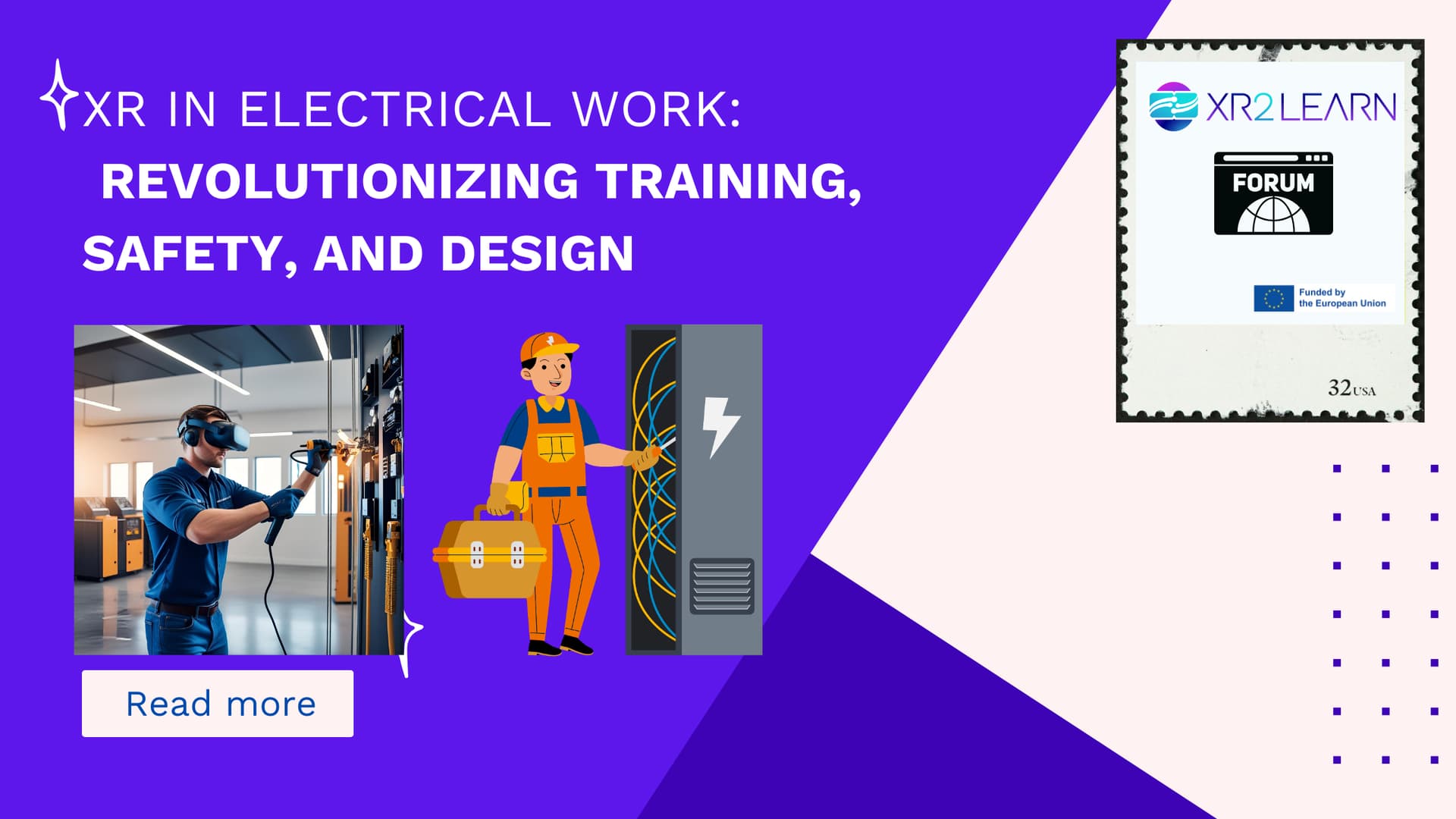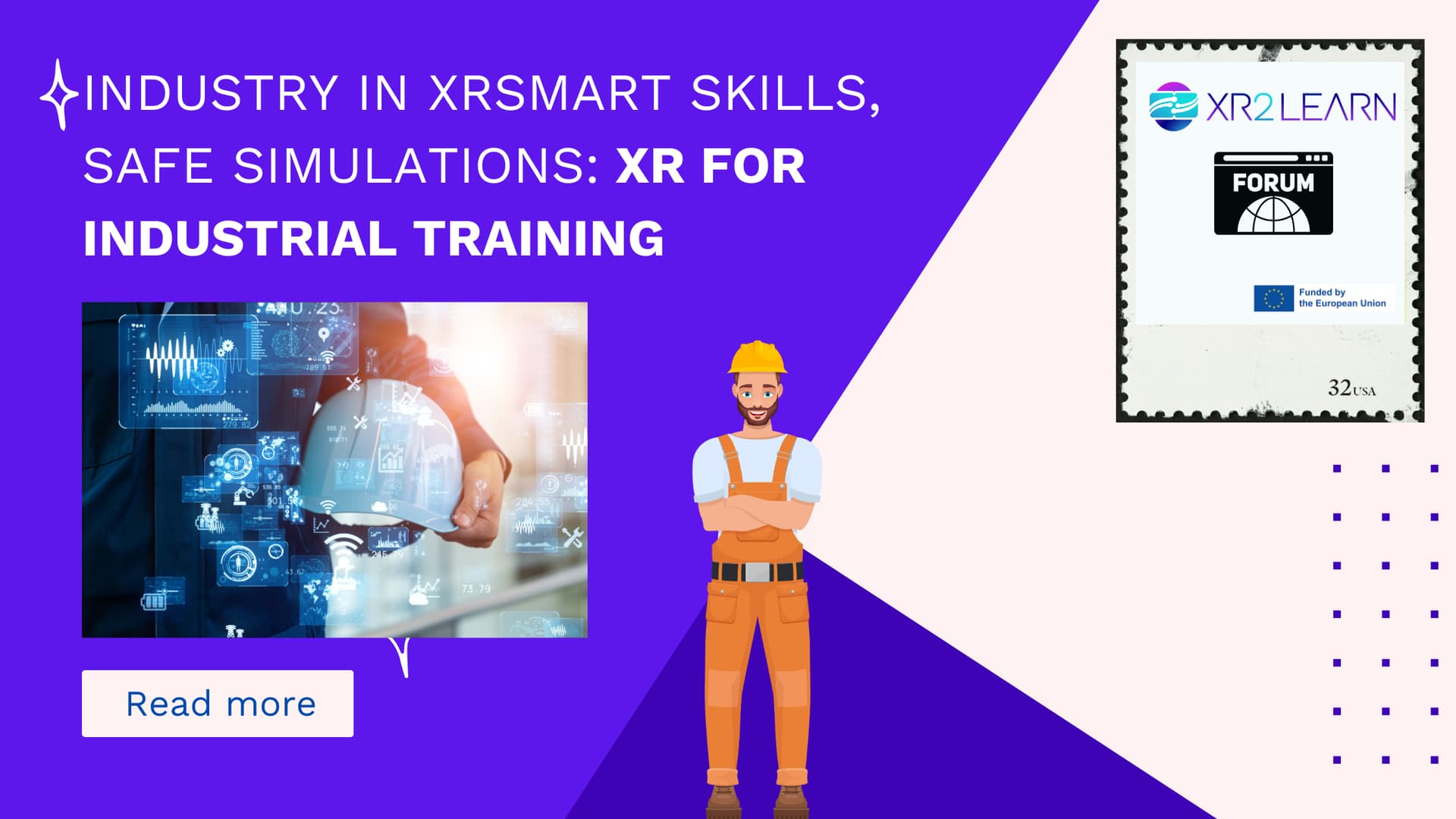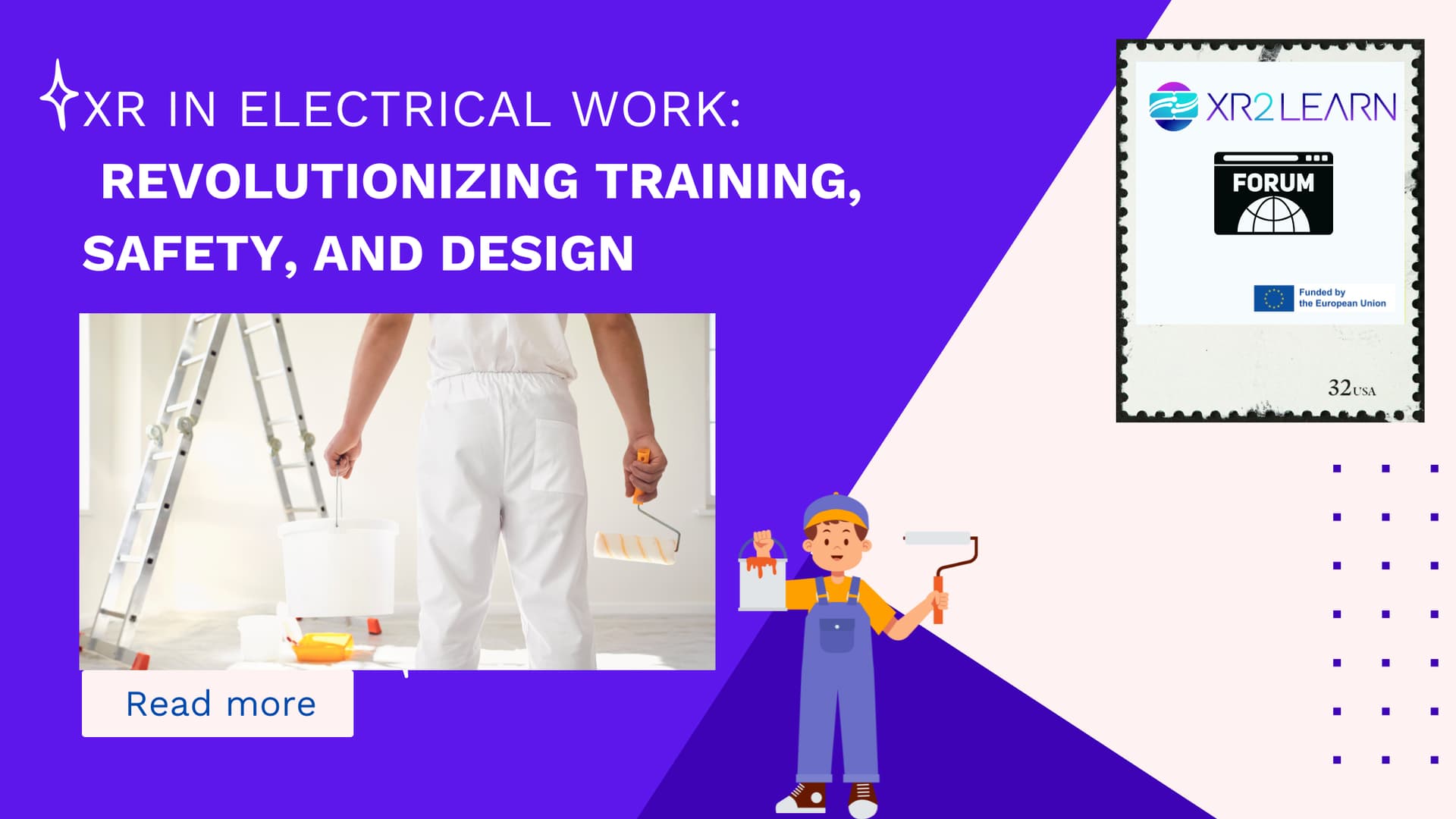![]() Extended Reality (XR) is transforming how skilled workers, from painters to electricians, are trained and supported on the job. VR platforms provide risk-free environments to practice tasks like electrical installations or painting techniques, while AR tools offer real-time guidance and troubleshooting during on-site work. XR is improving skill development, boosting confidence, and increasing workplace efficiency across a variety of trades.
Extended Reality (XR) is transforming how skilled workers, from painters to electricians, are trained and supported on the job. VR platforms provide risk-free environments to practice tasks like electrical installations or painting techniques, while AR tools offer real-time guidance and troubleshooting during on-site work. XR is improving skill development, boosting confidence, and increasing workplace efficiency across a variety of trades.
XR in Industry — Immersive Training for Industrial Workers
Training workers for complex industrial tasks has always been challenging. However, XR is providing safer, more effective training solutions. Through virtual reality (VR), workers can immerse themselves in simulated environments, practicing everything from operating machinery to navigating hazardous situations—without any risk.
![]() Virtual Simulations for Hands-On Learning
Virtual Simulations for Hands-On Learning
Platforms like Portal XR and XR2LabTrain are helping workers practice critical skills. For instance, they can operate complex industrial machinery, perform maintenance tasks, or inspect products for defects in a virtual environment that mimics real-life scenarios.
“Immersive VR training enables workers to repeat tasks until they feel confident, reducing training time and improving performance.”
— Siemens, 2023
By offering workers the chance to train in a virtual environment, companies can reduce downtime and avoid the potential cost of accidents. Workers also get immediate feedback, enhancing their skills more effectively than traditional methods.
![]() How do you think immersive training can impact employee safety and productivity? Could VR and AR training be the future of the industrial sector?
How do you think immersive training can impact employee safety and productivity? Could VR and AR training be the future of the industrial sector?
Immersive Training for Painters and Decorators
Traditionally, learning the craft of painting and decorating has required hands-on experience with real-world materials, which can be time-consuming and costly. However, XR technologies like Virtual Reality (VR) are now providing a way to simulate real-world environments where painters and decorators can practice their skills safely and effectively.
![]() VR Simulations for Skill Practice
VR Simulations for Skill Practice
Through VR platforms, aspiring painters can practice applying various painting techniques, from basic wall painting to intricate decorative finishes, without the need for actual materials. Virtual environments allow them to experiment with different tools and techniques, such as roller application, brushwork, and stenciling, all within a risk-free setting.
“VR training for painters allows them to practice as much as needed before they touch a real surface, reducing mistakes and boosting confidence.”
The ability to simulate different types of surfaces—like textured walls, ceilings, or wooden trims—gives trainees a comprehensive experience. They can also practice in scenarios that are too dangerous or challenging to recreate in real life, like working on high scaffolding or using chemical-based paints.
![]() Do you think immersive training can help speed up the learning process for painters? Could VR be the key to mastering complex painting techniques quickly?
Do you think immersive training can help speed up the learning process for painters? Could VR be the key to mastering complex painting techniques quickly?


